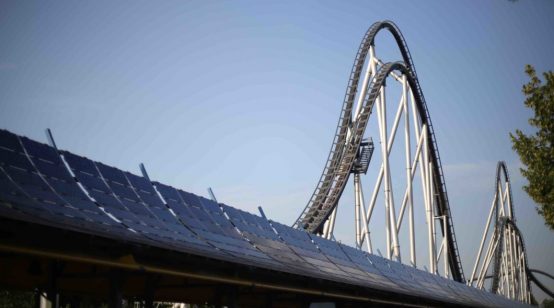
Researchers at the Queen Mary University of London are using a croissant-making technique to inspire an experiment on storing energy in a sustainable, battery-like device.
The pastry is made with dough that is pressed and layered and researchers have taken the method and applied it to a dielectric capacitor that stores energy like a battery.
The results purportedly offer a potential breakthrough in storing renewable energy.
Dr Emiliano Bilotti, who led the project, said: “Storing energy can be surprisingly tricky and expensive and this is problematic with renewable energy sources which are not constant and rely on nature.
“With this technique, we can store large amounts of renewable energy to be used when the sun is not shining and it is not windy.”
Batteries, electrochemical capacitors and dielectric capacitors are three main storage options currently available.
Dielectric capacitors are ultra-high density for functions that require power to be released quickly.
They are suitable for high power and pulse-power technologies that need accumulated energy to be released very quickly in functions like motor drives, mobile power systems, space vehicle power systems and electrochemical guns.
But dielectric capacitors are limited by the low amounts of power they can retain. The study says it can tackle the storage limitation.
After pressing and folding a capacitor which is covered with a plastic film, the London-based researchers said they were able to store 30 times more power than the best-performing model on the market, the dielectric capacitor, biaxially oriented polypropylene (BOPP).
The study in the scientific journal, Nature Communications, said it was the “highest energy density ever reported in a polymer film capacitor”.
Professor Mike Reece, who worked on the project, said it “promises to have a significant impact on the field of pulse power applications”.
Expensive and challenging processes are normally necessary to achieve high-energy density in polymer-film capacitors but this newly developed processing, pressing and folding, is being hailed as unique for its simplicity, record high-energy density and potential to be adopted at an industrial level.
The issue with new battery technology is whether it can be adapted to industrial-scale production and fit modern lifestyles. Picture credit: Flickr





